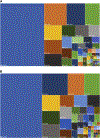NIH Funding for Surgeon-Scientists in the US: What Is the Current Status?
- PMID: 33588041
- PMCID: PMC9376791
- DOI: 10.1016/j.jamcollsurg.2020.12.015
NIH Funding for Surgeon-Scientists in the US: What Is the Current Status?
Abstract
Background: Recent literature suggests that the future of surgeon-scientists in the US has been threatened for the past several decades. However, we documented an overall increase in NIH funding for surgeon-scientists, as well as the number of NIH-funded surgeons, from 2010 to 2020.
Study design: NIH-funded principal investigators (PIs) were identified for June 2010 and June 2020 using the NIH internal data platform iSearch Grants (version 2.4). Biographical sketches were searched for key terms to identify surgeon-scientists. Grant research types and total grant costs were collected. American Association of Medical Colleges data were used to determine total surgeon and physician populations. Bivariate chi-square analyses were performed using population totals and were corroborated using z-tests of population proportions using JMP (version 13.0.0). A 2-tailed p value <0.05 was considered significant.
Results: In June of 2020, a total of 1,031 surgeon-scientists held $872,456,710 in NIH funding. The percentage of funded surgeons significantly increased from 2010 (0.5%) to 2020 (0.7%) (p < 0.05), and the percentage of funded other physicians significantly decreased from 2.2% in 2010 to 1.6% in 2020 (p < 0.05). All surgeons sustained R grant funding at both time points (58% in 2020 and 60% in 2010), and specifically maintained basic science-focused R grants (73% in 2020 and 78% in 2010).
Conclusions: Our study found surgeon-scientists are increasing in number and NIH funding and are becoming more diverse in their research efforts, while maintaining a focus on basic science.
Copyright © 2020 American College of Surgeons. All rights reserved.
Figures




Comment in
-
A Step in the Right Direction for Surgeon-Scientists.J Am Coll Surg. 2021 Mar;232(3):274-275. doi: 10.1016/j.jamcollsurg.2020.12.019. J Am Coll Surg. 2021. PMID: 33637177 Free PMC article. No abstract available.
References
-
- Thompson JC. Gifts from surgical research. Contributions to patients and to surgeons. J Am Coll Surg 2000;190:509–521. - PubMed
MeSH terms
Grants and funding
LinkOut - more resources
Full Text Sources
Other Literature Sources
Miscellaneous

